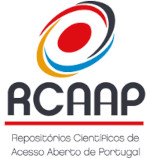Educação ambiental em tempos de crise ecológica e climática:
o exemplo dos jovens Pigmeus e Rapanui
DOI:
https://doi.org/10.14295/remea.v40i3.15726Palabras clave:
mudança climática, conhecimento, reflexão, complexidade, açãoResumen
Os jovens estudantes de hoje são a próxima geração que amanhã terá de suportar as consequências dos efeitos das alterações climáticas numa crise ecológica. Conscientes do imobilismo dos responsáveis políticos em matéria de clima e ambiente, estes jovens querem tomar as rédeas do seu próprio destino, comprometendo-se a agir contra os efeitos das alterações climáticas. Porém, o modelo educativo compartimentalizado, fragmentado, disjuntivo e disciplinar não está adaptado aos grandes desafios colocados pelas alterações climáticas e ambientais. Neste artigo, propomos uma reflexão sobre a ideia de transformação, na forma como o conhecimento está ligado, numa aprendizagem para a cidadania em que o ensino da condição humana colocará o pensamento crítico do aluno no centro da sua condição de cidadão consciente. Utilizamos o programa de pesquisa, pacto mundial de jovens pelo clima como base de nossa reflexão. Concluímos que sem uma transformação da educação ambiental, as complexidades e incertezas de um mundo em constante mudança ficarão sem resposta.
Descargas
Citas
BOEVE-DE PAUW, J., DONCHE, V., e VAN PETEGEM, P. (2011). Adolescents’ environmental worldview and personality: An explorative study. Journal of environmental psychology, 31(2), 109-117.
CUTTER-MACKENZIE AMY e ROUSELL DAVID (2019) Education for what? Shaping the field of climate change education with children and young people as co-researchers. Children’s Geographies, vol. 17, n°1 pp. 90–104
CRATE A.SUSAN (2011). Anthropology in the Era of Contemporary Climate Change. Rev. Anthropology, no, 40, p.175–194.
FORDA, D. JAMES, SHERMANA, MYA, BERRANG-FORDA LEA, et al. (2018) Preparing for the health impacts of climate change in Indigenous communities: The role of community-based adaptation. Global Environmental Change n° 49, pp. 129–139.
GILORMINI PATRICK, MOREAU DOMINIQUE (2004) Quelle place pour le discernement éthique personnel ? Economie & Humanisme, numéro 370, pp. 32-34.
GREINDL, DELPHINE (2008) Les jardins de pierres de Rapa Nui. Planète & Jardins. Horizon - documentation, IRD, fiche 59, pp.283-287.
GUATTARI FELIX (1986) Les Trois écologies. Editions Galilée, Paris.
IPCC (2018). Intergovernmental Panel of Climate Change, Global warming, 1.5 C°, 35 p.
YUNHUA LIU e ALICE CONSTABLE (2010) Earth Charter EDS Chinese Philosophies. Journal of Education for Sustainable Development 4:193.
LATOUR BRUNO (2015) Face à Gaïa. Huit conférences sur le nouveau régime climatique. Les empêcheurs de penser en rond/La Découverte, Paris.
MEADOW, M. ALISON, FERGUSON DANIEL B. et al.(2015) Moving toward the Deliberate Coproduction of Climate Science Knowledge, American Meteorological Society, vol. 7 DOI: 10.1175/WCAS-D-14-00050.1, p.179-191.
MORIN, EDGAR (1991). Les idées, leur habitat, leurs mœurs, leur organisation, La Méthode 4, Editions du Seuil, Paris.
MORIN, EDGAR KERN, ANNE BRIGITTE (1993). Terre- Patrie, Editions du Seuil, Paris.
MORIN, EDGAR (1999). Les Sept Savoirs Nécessaires à l’Education du Futur. Editions du Seuil,
MORIN, EDGAR (2001). L’identité humaine. L’Humanité de l’Humanité. La Méthode 5, Editions du Seuil, Paris.
MORIN, EDGAR (2014). Enseigner à vivre : manifeste pour changer l’éducation. Arles : Actes Sud.
OTTO SIEGMAR, EVANSGARY W, et al.(2019) The development of children’s environmental attitude and behavior. Global Environment Change, vol.58, pp. 1-6.
PENA-VEGA, ALFREDO (2003) O despertar ecologico. Edgar Morin e a ecologia complexe. Garamond Universitaria, Rio de Janeiro.
PENA-VEGA, ALFREDO (2008) Une tête bien faite, pour changer un monde incertain. Communications, n°82, pp.135-141
PENA-VEGA, ALFREDO (2021) Les sept savoirs nécessaires à l’éducation au changement climatique. Comment les jeunes s’engagent pour l’urgence climatique. Atlantique Editions, 176 p.
PENA-VEGA, A., COHEN, al.(2022). Young People Are Changing Their Socio-Ecological Reality to Face Climate Change: Contrasting Transformative Youth Commitment with Division and Inertia of Governments. Sustainability, 14(22), 15116.
PASCOE SOPHIE, BRINCAT SHANNON, CROUCHERASHLEIGH (2018)The discourses of climate changes cience : Scientific reporting, climate negotiations and the case of Papua New Guinea. Global Environmental Change n° 54, pp. 78–87.
PIDGEON NICK e FISCHHOFFBARUCH (2011) The role of social and decision sciences in communicating uncertain climate risks. Nature Climate Change, vol.1, pp.35-41
POORTINGAWOUTER, WHITMARSH LORRAINE et al. (2019) Climate change perceptions and their individual-level determinants: Across European. Global Environmental Change, n°55, pp.25-35
TOLPPANEN SAAKARI, AKSELA MAIJA (2018) Identifying and addressing students’ questions on climate change. The Journal of Environmental Education, vol 49, no 5, pp. 375–389
SEELENFREUND, Andrea, MUNOZ, Diego, et FAJRELDIN, Valentina (2018). La Antropología chilena en Rapa Nui: Una restrospectiva.
WIESER CLEMENS (2016) Teaching and personal educational knowledge – conceptual considerations for research on knowledge transformation. European Journal of Teacher Education, 39:5, 588-601, DOI: 10.1080/02619768.2016.1253673.
WILLIAMS SARA, MCEWEN LINDSEY J. e QUINN NEVIL (2017) As the climate changes: Intergenerational action-based learning in relation to flood education. The Journal of Environement Education, vol. 48 n°3, pp. 154-171.
Descargas
Publicado
Cómo citar
Número
Sección
Licencia

Esta obra está bajo una licencia internacional Creative Commons Atribución-NoComercial-CompartirIgual 4.0.










